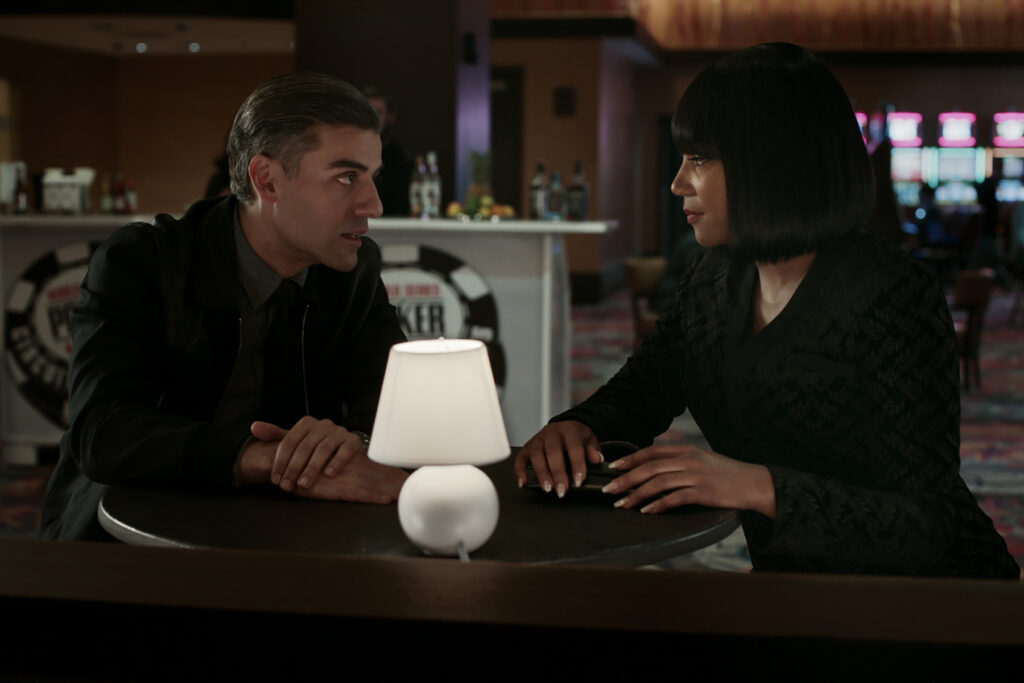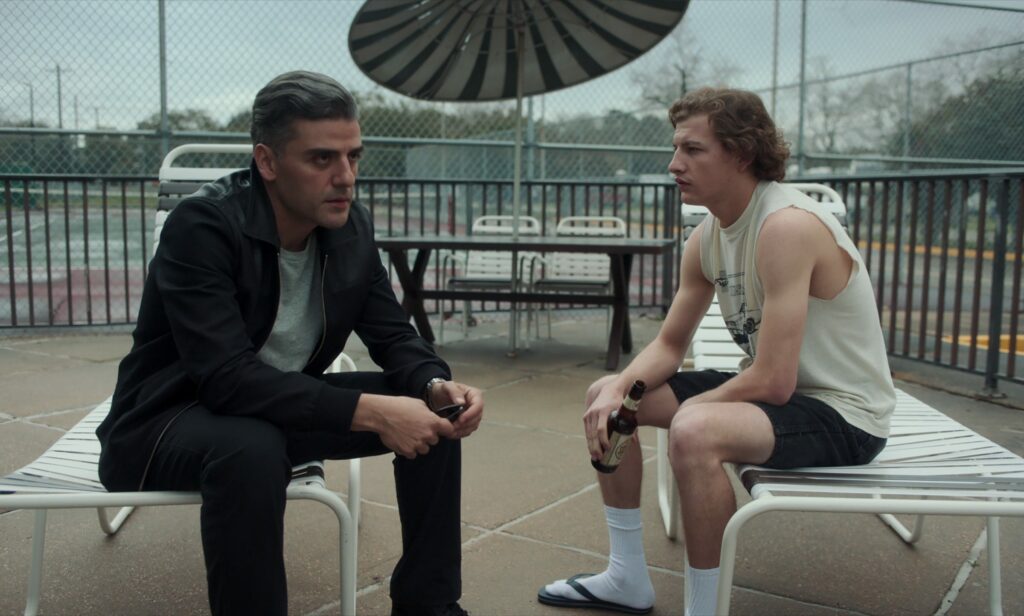Paul Schrader’s The Card Counter follows a stretch in the life of William “Tell” Tillich (Oscar Isaac), ex-military interrogator and the card counter himself, as the ghosts of his past reach out to greet him. It’s the perfect recipe for a high-stress drama, as past horrors haunt Tell and his high stakes gambling causes tensions to mount; The Card Counter keeps you further on edge of your seat as its runtime progresses.
Writer-director Schrader (a long-time collaborator of Martin Scorsese, who here produces) casts a unique look at a story of revenge and redemption. In traditional versions of this tale, there would be significant focus on the villain – the person who wronged our protagonist – before engaging in the revenge itself. In this version however, very little time is dedicated to the story’s antagonist – Major John Gordo, played by Willem Dafoe – and the film instead chooses to focus on Tell’s personal demons and the darkened road down which revenge can lead. As the audience, you do not crave the catharsis of some bloody revenge; it isn’t what the characters want and, if it happens, worse things will inevitably happen.

Isaac’s turn as Tell is incredible: assured, regimented and straight faced, he delivers lines and exposition in a way that’s matter-of-fact and almost devoid of feeling. In the moments where emotions are displayed, Isaac expertly delivers with a mere flicker of an expression before quickly resetting. These micro moments add untold depth to the story and to the character himself in a performance that’s impressive to watch. It also means that the moments where the rug is pulled out from under Tell are all the more startling for how promptly he snaps back behind a façade.
Tiffany Haddish as La Linda is a welcomed addition, Haddish proving that she can play outside of Hollywood’s typecasting incredibly well. Together with Tye Sheridan as Cirk (with a C), the collection of supporting characters are fascinating and mismatched in the best possible way. The audience direly want things to work out for them all; you wish for realisations and happy endings. But in stories of revenge – especially ones like this – a happy ending is a relative term.

Another of The Card Counter’s strengths lies in its soundtrack, composed by Robert Levon Been and Giancarlo Vulcano. There is a distinct separation between Tell’s military past and his present: in flashbacks, the music is overpowering, intense and constant. In the present, it features more strings, as the music softly ebbs and flows. And in its more powerful moments, there’s no music at all – it allows the tension at the poker tables to grows without relief, so that all the viewer can focus on is Tell and the murmur of voices from pundits.
The Card Counter is an intense take on the revenge and redemption story formula. The dynamic between characters, the tension between Tell’s past and present, as well as his rich inner life, all make for a fantastically character-driven film. With a combination of excellent writing, a committed cast, a slick aesthetic and excellent score, viewers will be swept away in the world that Schrader has created.
The Card Counter releases in cinemas November 5th.
